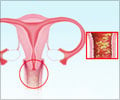
Infection prevention and control (IPC) education is a fundamental component of the nursing curriculum, but little is understood about nursing students' experience of IPC in the clinical setting when they are learning by observing qualified practitioners. Researchers at Cardiff University and City University, London conducted an anonymous online survey among nursing students in the United Kingdom to identify how often they witnessed a range of possible lapses in IPC during their clinical practicums.
All of the 488 students who completed the 19-question survey reported witnessing at least one instance of non-compliance, with the most frequently observed events relating to hand hygiene. More than 75 percent of the 488 respondents saw healthcare workers fail to clean hands between patients, and 60 percent saw healthcare workers wearing nail polish or nail extensions. Other lapses observed by more than half of survey respondents included failure to comply with isolation precautions, inadequate cleaning of the patient environment, not changing personal protective clothing between patients, and poor handling of sharp instruments.
The students commented most often about the poor IPC habits of physicians, specifically with regard to hand hygiene, handling and disposal of sharp instruments, and failure to use sterile techniques during insertion of medical devices. All occupational groups were criticized for touching the face, biting nails, and scratching during patient care.
"Overall, the findings support the conclusions of earlier researchers who explored experiences of IPC in the clinical setting," state the authors. "Qualified staff provided poor role models for student nurses. The findings of this study indicate the need for better role models for student nurses."
The study's limitations included the fact that the survey was only available to nursing students who were members of the Royal College of Nursing (RCN), and that only a small proportion of student nurses belonging to RCN accessed and completed the survey.
Advertisement
Source-Eurekalert










